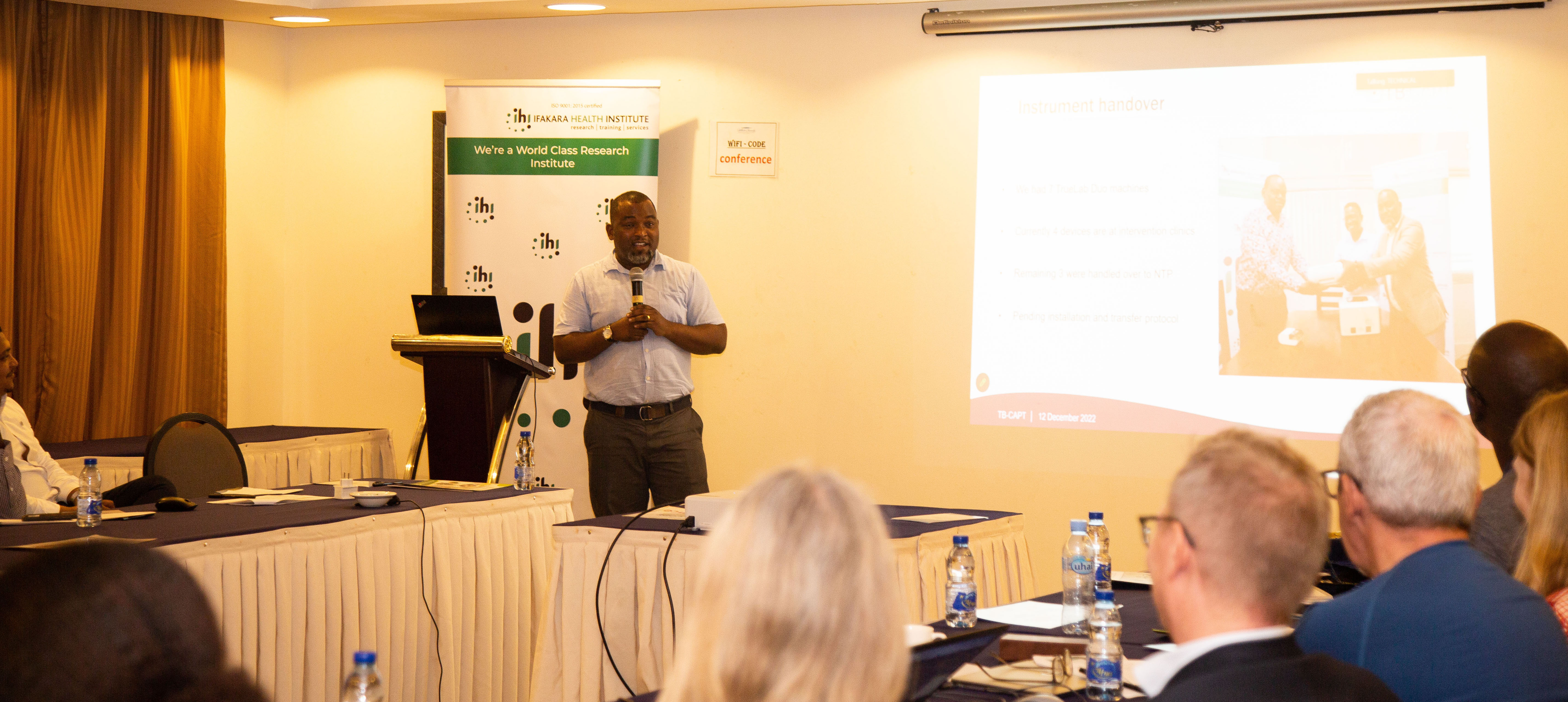
FEEDBACK: Scientists share, discuss user experience of TB diagnostic tools

On Day 2 of the 3-day Tuberculosis - Close the Gap, Increase Access, Provide Adequate Therapy (TB-CAPT) Annual Consortium Meeting currently on at the White Sands Hotel in Dar es Salaam, scientists shared and discussed user experience of the "TrueLab/TrueNat" – a real-time diagnostic machine for analyzing TB data.
The scientists provided insights into the status and feedback regarding the deployment of the diagnostic machine in Tanzania and Mozambique. They discussed the positive and negative experiences of patients, clinicians, lab technicians and nurses in using the machines and what can be concluded from the findings.
The machines are well known for their dependability, speed, and accuracy in TB diagnosis, making it possible for medical professionals to quickly identify TB cases, which will allow for early intervention and better treatment results, the meeting highlighted the challenges faced, valuable lessons learned, and recommendations for future studies, including navigating importation and regulatory obstacles related to the machines.
Ifakara donation to TB program
Dr. Jerry Hella, Principal Investigator for the project in Tanzania, and project leader and coordinator delivered a comprehensive report detailing how Ifakara Health Institute successfully donated 7 of these machines to the National Tuberculosis and Leprosy Programme (NTLP) in Tanzania.
He said the donation – of the machines under the TB-CAPT (CORE Trial) project implemented by Ifakara and funded by the European and Developing Countries Clinical Trials Partnership (EDCTP) – marked a significant progress in the fight against tuberculosis in the country. Ifakara obtained.
>>Read more about the handover here
About TB-CAPT
The TB-CAPT project is funded by the European and Developing Countries Clinical Trials Partnership (EDCTP). Its primary objective is to provide evidence for the implementation of diagnostic strategies for TB and TB/HIV co-infection. TB-CAPT aims to evaluate new technologies and their potential to enhance patient outcomes by replacing the current standard of care.
Additionally, the project seeks to facilitate policy changes and inform implementation strategies at global, national, and regional levels. It also focuses on strengthening infrastructure and building human capacity within the project's implementation areas, which include South Africa and Mozambique.
>>Learn more about TB-CAPT here
About TB
It is estimated that more than 10 million people worldwide fall ill with TB each year. However, only approximately 7 million cases are identified, leaving many undiagnosed. Among the nearly 2 million TB-related deaths annually, a majority could be prevented with early diagnosis and appropriate treatment.
The diagnosis gap in TB remains a significant challenge. Closing this gap is essential, and it requires the development of new TB tools and diagnostic technologies capable of not only detecting the disease but also identifying drug-resistant TB strains.
>>Learn more about TB here
